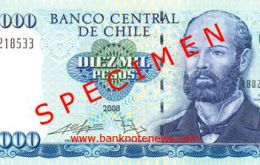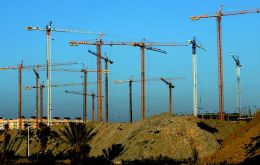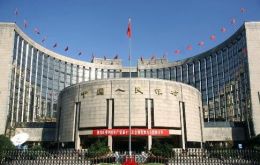MercoPress. South Atlantic News Agency
Economy
-
Saturday, January 9th 2010 - 14:13 UTC
Argentine sovereign bond holdouts reject latest payment offer

Argentina's new debt-swap offer to US creditors is “unacceptable” and does not improve on a proposal it made five years ago, the president of the debt-holding group Argentina Task Force, Robert Shapiro, said on Thursday, quoted by French news agency AFP.
-
Saturday, January 9th 2010 - 13:27 UTC
Swiss regulators “violated” the law by handing bank information to the US

Swiss financial regulator FINMA violated the law by authorising UBS to hand over details of 300 clients to US authorities, a Swiss court has ruled.
-
Saturday, January 9th 2010 - 08:44 UTC
Euro-zone officially out of recession but with record 10% unemployment

The unemployment rate in Euro-zone counties is currently running at 10%, its highest since August 1998, according to the statistics agency Eurostat. In November last year, another 102,000 people lost their jobs, bringing the overall figure above 15.7 million.
-
Saturday, January 9th 2010 - 08:23 UTC
Central Bank of Chile is releasing a new 10,000 Pesos note

After 20 years in circulation, the current 10,000 Chilean peso bill will be replaced this coming year, courtesy of commercial banks.
-
Saturday, January 9th 2010 - 08:08 UTC
Surprise rise in US unemployment during December

US employers unexpectedly cut 85,000 jobs in December, but the unemployment rate held steady at 10%, official figures have shown. The number of job losses was surprising, particularly after November's figures had been revised.
-
Friday, January 8th 2010 - 13:01 UTC
Excellent rain-timing anticipates record crops in Brazil of coffee and soy

Brazil's coffee crop may beat the 48.48 million bag record this year, the country's crop supply agency said in a report which also raised forecasts for the newly-begun soybean harvest.
-
Friday, January 8th 2010 - 08:11 UTC
Mrs. Kirchner gets her way and will pay debts with Central bank reserves

Argentine President Cristina Fernandez de Kirchner and her cabinet signed Thursday a disputed decree removing Central Bank President Martin Redrado from office amid a fight over the use of bank reserves to pay debt due this year.
-
Friday, January 8th 2010 - 08:08 UTC
China surprise move to control liquidity sends markets plunging

China's central bank surprised markets on Thursday by raising the interest rate on its three-month bills for the first time since August, intensifying its grip on liquidity a day after it promised to keep credit growth in check.
-
Friday, January 8th 2010 - 06:48 UTC
Latinamerica’s 2009 trade contracts 24% in value, the worst since 1973

Latinamerica and Caribbean exports plunged 24% in value last year compared to 2008 because of the international crisis, according to the latest estimates from the United Nations Economic Commission for Latinamerica and the Caribbean, Cepal, released Thursday in Santiago de Chile.
-
Friday, January 8th 2010 - 06:44 UTC
New Japan Finance minister wants weaker Yen to help recover economy

Japan's newly appointed finance minister Naoto Kan has called for a weaker yen in order to aid the recovery of the Japanese economy. Speaking the day after his appointment, Mr Kan said it would be “nice” to see the currency weaken.
